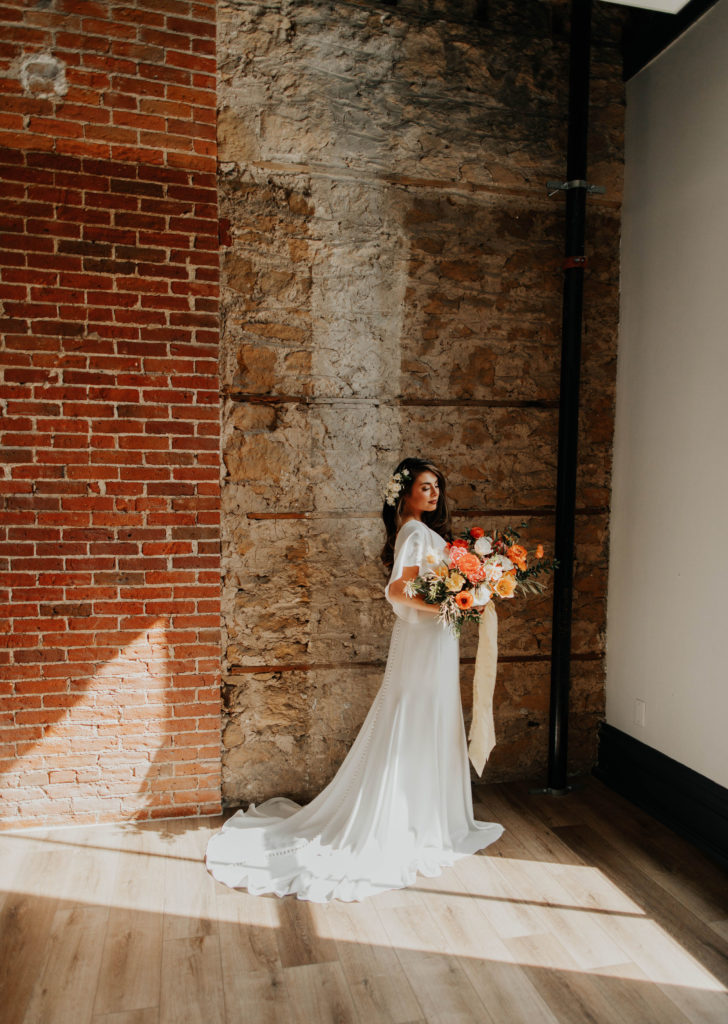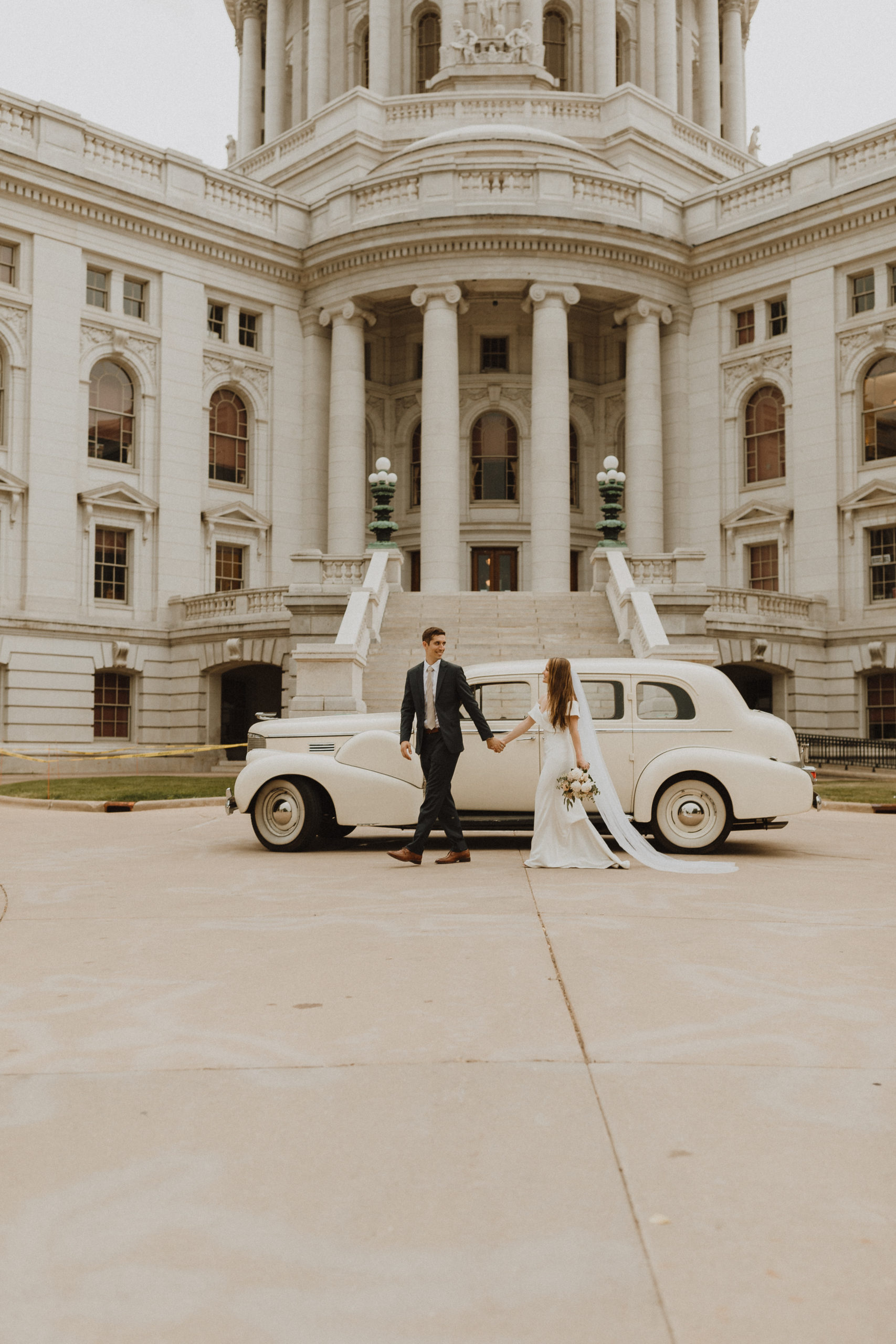We ran a series on Instagram recently about the necessary but often dreaded topic of MONEY, and wanted to also put it on the blog because a lot of people told us it was helpful! We ran a few polls/surveys and here is a recap of what our followers said, plus our own insight of being in this industry for over 8 years and seeing over 100 weddings/events ranging from budgets of $10k to over $150k+!

1. Start with a plan – Budget and guest list
Sounds like a no-brainer, but you really do need to prepare your guest list and budget first before you do ANYTHING else in wedding planning. It is so exciting to jump right into Pinterest as soon as you’re engaged. Let’s be honest, we had that Pinterest board started 3 years ago! Of course, please enjoy your engagement and celebrate. But at some point, you need to talk shop with your partner, your parents (if contributing), and anyone else who may influence your wedding budget.
If your budget is way too high, the best way to control costs is by controlling your guest list, having the hard conversations, and being realistic about actual costs (hint: what you see on Google isn’t accurate).
Then, choose your non-negotiables for budget: which vendors do you and your partner wholeheartedly agree are must-haves for your wedding day, no exceptions?
Also decide: Is the honeymoon and rehearsal dinner a separate budget? Oftentimes, couples choose to keep these separate.
2. Let’s Break It Down A Little More: Tough Convos
From the beginning, you need to have tough conversations.
- Determine who is contributing to the budget – and how much?
- From our audience, we learned that most people funded their weddings through a combination of parental contributions and their own money they had saved.
- Money = decision-making power. Know this may get a bit heated/emotional. Regroup, go back to your top 3 priorities for your wedding day, and don’t lose sight of the end goal: getting married. If you must compromise because your parents are paying for the entire thing, know this is pretty normal. Find other ways to infuse your personality and preferences. Maybe allow your parents (or stakeholder) to have a say in the rehearsal dinner, while you get to make a lot of the decisions for the wedding day.
3. Your Venue Can Make or Break Your Budget

Choose your venue wisely – It will affect everything else: vendor flexibility, design/decor, transportation/guest accommodations you may need to provide, your overall guest count, budget, staffing needs, and overall experience!
There are usually trade-offs: Is it more important to have the convenience of everything all-in-one place OR to have the flexibility to choose your vendors (knowing this will require a bit more planning)?
4. Abundance mindset vs. scarcity mindset
There is a vendor/wedding option for every budget. Truly. Even if it requires some creativity on your part. The reality is that every vendor charges differently based on their experience and lifestyle needs, their niche, and their value. The best way to approach a vendor is not to ask for a discount but to be upfront about what your max budget is. They will work with you within your budget parameters or will be honest if they are not the right fit – and may even refer you to someone who is the perfect vendor for you!
Of course, you should reach out to your top priority vendors right away to see if it is possible to hire them because vendors’ calendars are their prime real estate. We suggest reaching out to vendors about a year out in priority order (your planner can also help you with this).
Don’t forget to account for extra things hotel blocks and transportation (bridal party and guest) and other expenses that may not be top of mind when creating a budget.
5. REIGN IT IN
MOST couples end up spending more on their wedding (87% of our audience on Instagram!) and It all comes down to usually these three things: 1) not knowing how much weddings actually cost to begin with (totally depends on your market), 2) not being diligent about keeping track of expenses, and 3) spending extra money on stuff that you don’t need or will use.
We always encourage you to factor in your highest guest count (as in your invite list number) rather than the number you’re hoping to end up with. For example, if you are inviting 250 people, you may end up with 200 people (no specific formula can know for sure). It’s always best to budget for the highest guest count.
Once you get the final bills and final guest counts in, it’s always way better to have extra money to either a) apply toward other things you wanted (nicer flowers or a videographer or coordinator) vs. panicking because now you need to find another $5k to fund your wedding that you were hoping would just “work itself out.”
Keep in mind gratuities for vendors too.
Some vendors do NOT expect a tip or already include the gratuity/service charges – so review your bills/quotes/estimates carefully.
Here are vendors who usually expect/require a tip:
- Hair and makeup
- Transportation (drivers on the day of)
- Catering – they usually do have a gratuity/service charge already factored in
- Bartenders – a tip jar is always a good idea to have out at the ar even with a hosted bar!
Other vendors are usually OPTIONAL but we can’t tell you how nice it is when our clients tip us to thank us for going the extra mile, it’s always a nice touch! These vendors are: Photography, videography, planners, dessert, DJ/entertainment, etc., and play a huge part in your day!
All of our couples get a gratuity guide when they book with us and we are always happy to chat about what’s standard in the industry with our couples! Another perk to hiring a planner. 😉
6. Set Aside An Emergency Fund
Consider having an “emergency fund” for unexpected wedding planning costs THAT may pop up. for example: when the dress of your dreams + tax ends up being way more than you budgeted for or when you invited 275 people hoping only 200 would come but 230 people RSVPed. Or when you realize you do have a little more flexibility in the budget and just can’t stop thinking of hiring that live painter or adding on that extra signature cocktail you wanted! 🙂

7. Remember, You Truly Do Get What You Pay For
We are gonna keep this straight to the point: we all know someone who knows someone who may be able to do some flowers or be the “day-of coordinator”, but your wedding day is also an investment. Of course, use your resources, but know some things are better left to a professional.
There is value in hiring a professional and someone who IS experienced. We are not knocking any newbies in the industry though. Of course, we all were new at one point and many of us vendors charged low prices to get clients in the beginning, but with experience comes many, many weddings and failures and learning opportunities that you should never take for granted when hiring a vendor. Also make sure that your vendor has YOUR best interest in mind, and isn’t trying to push their agenda for their convenience. Of course, experts have invaluable insight, but they should be working with you and putting their clients first in the entire wedding process!
P.S. If your friend also happens to be a wedding professional, do not assume they will do it for free! In our experience, if it’s an officiant, emcee, or baker who is your friend – definitely have them do it! But other parts of your wedding day – maybe not.
8. Budget Sample***
The “average cost of a wedding” is misleading because there are SO many variables. Here is a sample breakdown of how you can use $30k for 150 people. The best way to control costs is to have a smaller guest list. See how easy it is to spend a lot of money on a wedding? Haha!!
- Venue: $4000 (includes chairs, tables, etc)
- Bar: $4000. hosted beer and wine w/ a signature drink
- Planner: $2000
- Photographer: $4,000
- All food: $7,000
- Hair and makeup: $500
- Attire: $2500
- DJ: $1800
- Florals/Decor: $3000
- Dessert: $700
- invites: $500
- Total: $30k
*** This budget works if the officiant is a friend. No hotels/transportation are covered by the couple, or bridal party to cover their attire/hair and makeup, etc.
This budget works if officiant is a friend. No hotels/transportation are covered by couple, bridal party to cover their own attire/hair and makeup, etc.
The goal for wedding planning budgets is for reception expenses to be about 50% of your budget (venue, food, bar)

9. Perspective
Money is a hard topic. It’s one of the most stressful topics In life with such varying opinions. Almost every couple faces challenges with money and wedding planning.
If you remember nothing from this, here’s what we want you to leave with: Remember what matters. Remember you can always elope, have a micro wedding, or cut out a few things and compromise to get a happy medium. And remember that you will be getting married at the end of this and that’s the main goal! Don’t let money stress take away from the joys of planning!
If you feel like you need immense help in the money department, consider reaching out to our team. We are Madison, WI and Twin Cities wedding planners ready to serve you and help you navigate your wedding budget, logistics, and so much more.
